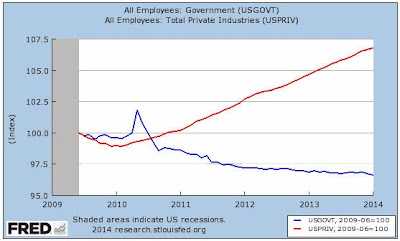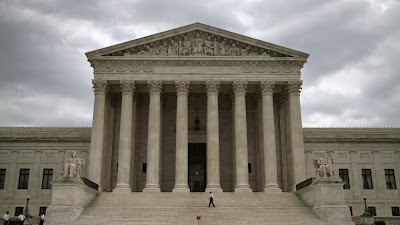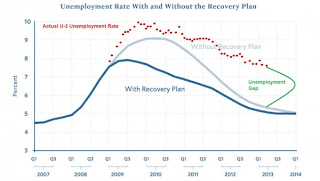Values, Virtue, and the Misunderstood Concept of Sacrifice
The following discussion concerns itself with the concept of values, and how values relate to virtue and sacrifice in the larger context of proper ethical behavior. The definition of terms is taken from Random House Webster’s American Dictionary. While there is more than one definition for these terms the definitions selected are limited specifically to the scope of this discussion.
Ethics – 1) a system of moral principals. 2) the branch of philosophy dealing with right and wrong.
Values – the abstract concepts of what is right or good.
Virtue – moral excellence
Sacrifice – the giving up of something of value for the sake of something else.
Ethics are principals that are generally held by society to be both moral and just. If properly determined a moral principal will by definition be just, and right. Within the larger discipline of philosophy ethics is the branch that studies right and wrong as the concepts relate to the individual man and his interaction with others in society.
Before an individual can successfully interact in society they must first understand that which gives them happiness, for happiness is the utmost moral purpose of an individual’s life and properly understand becomes the ethical fiber on which one will build all other values. The person who fails to understand this, and lives their life selflessly as many believe is the higher moral value, will in the end have only a feeling of emptiness and hopelessness. They will in essence have lost the self as a result of their attempt to live their lives for others at the expense of themselves.
Values are abstract concepts and as such any given particular value not be held universally by all people. This means what one person considers to be a value of any specific magnitude another may consider to be of lesser value, of higher value, or possibly of no value at all. Individuals either consciously or unconsciously ascribe value to concepts in reference to their life and experiences. Here I feel it appropriate to inject a personal observation; to be valid one’s values must be determined by rational thought and must be intentionally conscience and integrated into ones broader philosophy of their life. Failure to consciously determine ones values can and often does result in random meandering through life and the unhappiness this brings with it.
Given this rationale it is easy to understand that values are hierarchal by nature. Each person determines for themselves what their hierarchy of values is. In an independent and free society it is generally held three of the highest values to the individual, and subsequently to the society as a whole are life, liberty, and the pursuit of happiness as expressed by the founding fathers of the United States of America
Virtue is considered a behavior found in an individual that reflects high moral character, such as the defense by one individual of the right of all individuals to their political beliefs, religious belief or lack thereof, of self determination, and the right of others to their personal happiness on their own terms. Some other examples of virtue are honesty, integrity, hard work (productive activity), charitable giving, etc.
Sacrifice is perhaps one of the most misunderstood concepts in society and has for the most part always been so. Because of this I also suggest it is one of the most misused terms in society and results in a great deal of unhappiness and guilt. To understand the proper use of the term sacrifice one must first grasp the meaning of ethical behavior, the hierarchy of values, and the meaning of virtue.
Generally society understands sacrifice to mean when the individual gives up something they value for the sake of something else; usually as determined by someone else or some larger entity. It is often heard that a person should sacrifice for the greater good of humanity, or perhaps they should sacrifice that which make them happy because it is sinful and may anger God , or one must sacrifice for the greater good of the state, or perhaps because one has worked hard to provide for their family, thereby giving them best life they can, they should somehow give up a portion of their security so as to help those who have failed to work as hard. All of the above examples deny the individual, twists the proper definition of sacrifice, and attempts to lay quilt on the individual should they think otherwise. The concept of sacrifice, as generally understood by the masses, has been sold by all religious faiths of the world and by all state governments save the capitalist United States. Today the United States as well has fallen prey to this misguided concept of sacrifice.
The proper understanding and definition of sacrifice should be as follows; “Sacrifice is the relinquishing or giving up a value for another value of higher consequence.” Put another way a person should never give up a value for a lesser value.
By way of example: 1) an individual should never sacrifice their happiness for that which will cause them unhappiness, 2) an individual should never give up the life of their spouse or child for the sake of preserving the dwelling, 3) one should never give up the food necessary to sustain their life or that of their child or spouse to sustain the life of a stranger, 4) one should not part with their or their family’s wealth so that a lazy vagrant can live a better life without effort.
Examples of sacrifice for higher a value: 1) an individual who places the value of their spouse’s or child’s life as high as their own would naturally and without hesitation sacrifice their own in protection of their family, 2) an individual who values liberty will sacrifice their own life in its defense rather than live in tyranny, 3) for the person who holds charity for others as a value higher than the dollar they would sacrifice an amount they felt reasonable to help a struggling family, 4) If the happiness of a beloved significant other concerning a specific issue is as high a value as ones own happiness with respect to the issue then the individual would sacrifice their own happiness in that instance. Here I add the observation the examples chosen for this paragraph highlight the virtue of selfishness, for selfishness is defined as concern for ones own self interest. In all of examples the choices shown are in fact in the individuals self interest, more on this concept later.
In summary, values are abstract concepts of right or wrong, with virtue being a value of the highest moral excellence. One should only sacrifice a value for the sake of a higher or more virtuous value. Philosophy and specifically the study of ethics determine proper moral principals and right from wrong. This is why I hold the understanding of philosophy in general, and the development of a proper personal philosophy by a person, as important to one leading a directed, happy and fulfilling life.







hi!,I really like your writing very much! proportion we keep up a correspondence more about your post on AOL?
ReplyDeleteI require an expert in this area to solve my problem.
Maybe that is you! Taking a look forward to peer you.
click the following web page
and Click At this website
and Click On this website
and also click the following internet page
My blog :: connectionswithheart